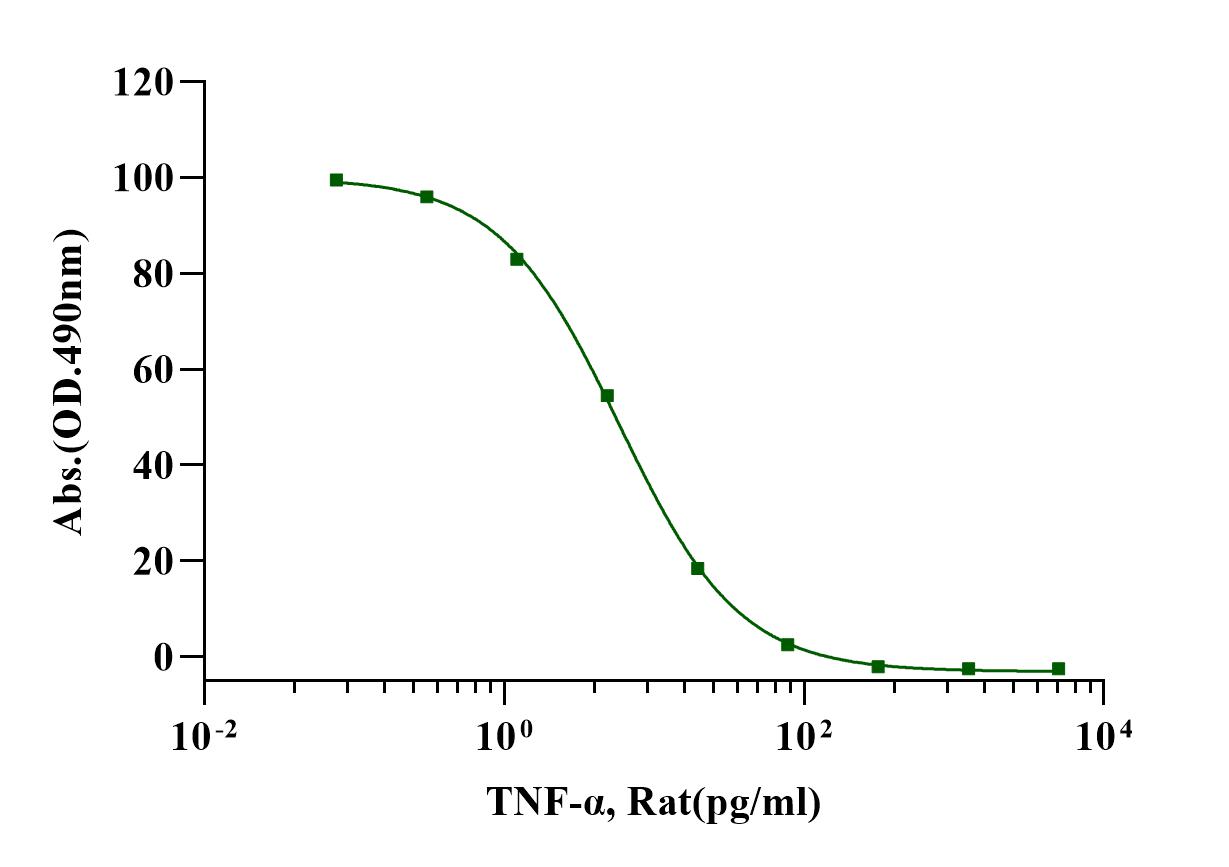


 下载产品说明书
下载产品说明书 用小程序,查商品更便捷
用小程序,查商品更便捷



 收藏
收藏
 对比
对比 咨询
咨询










2μg (R: reducing condition, N: non-reducing condition).


Tumor Necrosis Factor alpha (TNF-α), is an inflammatory cytokine produced by macrophages/monocytes during acute inflammation and is responsible for a diverse range of signaling events within cells, leading to necrosis or apoptosis. TNF alpha exerts many of its effects by binding to either a 55 kDa cell membrane receptor termed. TNFα activates signals through two receptors, TNF-R1, which is expressed on most cell types, and TNF-R2, which is expressed mainly on immune cells. TNFα can have many functions including, to stimulate of phagocytosis in macrophages, to chemoattract neutrophils, to increase insulin resistance and to induce fever.


· 3 months, -20 to -80℃ under sterile conditions after reconstitution.
· 1 week, 2 to 8℃ under sterile conditions after reconstitution.
· Please avoid repeated freeze-thaw cycles.
1.Hector J. et al. (2007) TNF-alpha alters visfatin and adiponectin levels in human fat. Horm Metab Res. 39(4): 250-255.
2.Berthold-Losleben M. et al. (2008) The TNF-alpha System: Functional Aspects in Depression, Narcolepsy and Psychopharmacology. Curr Neuropharmacol. 6(3): 193-202.

参考图片
2μg (R: reducing condition, N: non-reducing condition).
Measured in a cell proliferation assay using L-929 mouse fibrosarcoma cells, the EC50 for this effect is less than 10pg/mL






 危险品化学品经营许可证(不带存储) 许可证编号:沪(杨)应急管危经许[2022]202944(QY)
危险品化学品经营许可证(不带存储) 许可证编号:沪(杨)应急管危经许[2022]202944(QY)  营业执照(三证合一)
营业执照(三证合一)